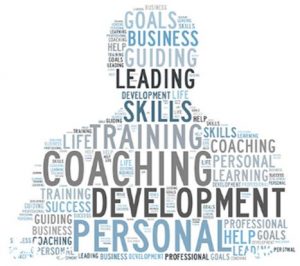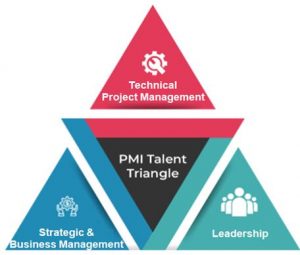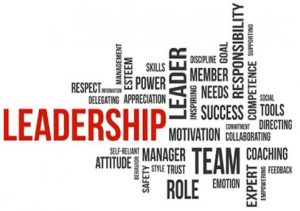Essential Skills an Effective Project Manager must have
While delegating the charge of a project to a project manager organizations essentially look for the variety of skills for getting the job done. Apart from technical, business and management skills, the project manager ought to have a number of soft skills as well. The project manager has to not only deal with the systems and processes but also with human beings. A project can be successfully completed through a team effort and by strong relationships all across the organization.
Many times, organizations will knight their technical experts as project managers. The skill and expertise that made them stars in their technical fields are mistakenly thought to translate into project management skills. This is not necessarily so.
Project managers are generalists with many skills in their repertoires. They are also problem solvers who wear many hats. Project managers might indeed possess technical skills, but technical skills are not a prerequisite for sound project management skills. Your project team should include a few technical experts, and these are the people on whom the project manager should rely on for technical details. Understanding and applying good project management techniques, along with a solid understanding of strategic and business management skills, as well as interpersonal skills, are career builders for all aspiring project managers.
 Project managers have been likened to small-business owners. They need to know a bit about every aspect of management. General management skills include every area of management, from accounting to strategic planning, supervision, personnel administration, and more. Interpersonal skills are often called soft skills and include, among others, communications, leadership, and decision making. General management and interpersonal skills are called into play on every project. But some projects require specific skills in certain application areas. Application areas consist of categories of projects that have common elements. These elements, or application areas, can be defined several ways: by industry group (automotive, pharmaceutical), by department (accounting, marketing), and by technical (software development, testing, engineering) or management (procurement, research, and development) specialties. These application areas are usually concerned with disciplines, regulations, and the specific needs of the project, the customer, or the industry. For example, most governments have specific procurement rules that apply to their projects but that wouldn’t be applicable in the construction industry. The rules and regulations of the pharmaceutical industry are different; likewise, regulations are different for the automotive industry. The experience of working in the application area provides you an edge when it comes to project management. Although you can always invite the experts who have in-depth application area knowledge, it helps you to better understand the specific aspects of the application areas of your project.
Project managers have been likened to small-business owners. They need to know a bit about every aspect of management. General management skills include every area of management, from accounting to strategic planning, supervision, personnel administration, and more. Interpersonal skills are often called soft skills and include, among others, communications, leadership, and decision making. General management and interpersonal skills are called into play on every project. But some projects require specific skills in certain application areas. Application areas consist of categories of projects that have common elements. These elements, or application areas, can be defined several ways: by industry group (automotive, pharmaceutical), by department (accounting, marketing), and by technical (software development, testing, engineering) or management (procurement, research, and development) specialties. These application areas are usually concerned with disciplines, regulations, and the specific needs of the project, the customer, or the industry. For example, most governments have specific procurement rules that apply to their projects but that wouldn’t be applicable in the construction industry. The rules and regulations of the pharmaceutical industry are different; likewise, regulations are different for the automotive industry. The experience of working in the application area provides you an edge when it comes to project management. Although you can always invite the experts who have in-depth application area knowledge, it helps you to better understand the specific aspects of the application areas of your project.
Project managers are not the sole performers on a project and are not expected to know everything or to perform every task. But they should have sound project management skills, adequate technical skills, and sufficient experience to manage the size, complexity, and risk of the project they’ll undertake. They also serve as champions for the value of project management, help to socialize and gain acceptance of project management concepts and advance the effectiveness and advantages of the PMO.
PMI Talent Triangle:
PMBOK Guide prescribes that project management personnel must have technical skills, leadership skills and business intelligence skills for effectively supporting the successful achievement of project requirements. Such a combination of technical, leadership, and strategic and business management competency is known as the PMI Talent Triangle.
 1) Technical Project Management Skills:
1) Technical Project Management Skills:
Technical skills, as it relates to project management, refer to the knowledge, skills, and behaviors related to specific domains of Project, Program, Portfolio and Product Management. It includes the following expertise:
# Agile Practices
# Data Gathering
# Earned Value Management
# Governance (Project, Program, Portfolio)
# Lifecycle Management (Project, Program, Portfolio, Product)
# Performance Management (Project, Program, Portfolio)
# Requirements Management and Traceability
# Schedule Management
# Scope Management (Project, Program, Portfolio, Product)
# Time, Budget, and Cost Estimation
The project manager isn’t expected to be a technical expert (from the perspective of the product of the project) and should have sufficient subject matter expertise on the project team to address technical concerns. The project manager is concerned with using the right tools and techniques for the project, planning appropriately, and managing the schedule, budget, resources, and risks.
2) Leadership Skills:
Leadership skills, as it relates to project management, refer to the knowledge, skills, and behaviors specific to leadership-oriented, cross-cutting activities that help an organization achieve its business goals. It includes the following expertise:
# Brainstorming
# Coaching and Mentoring
# Emotional Intelligence
# Constructive Influencing
# Interpersonal skills
# Listening
# Negotiation
# Problem Solving
# Team Building

Leaders and managers are not the same. Leaders impart vision, gain consensus for strategic goals, establish direction, and inspire and motivate others. They guide and direct the team in accomplishing the project’s objectives. Managers focus on results and are concerned with getting the job done according to the requirements. Even though leaders and managers are not the same, project managers must exhibit the characteristics of both during different times on the project. Understanding when to switch from leadership to management and then back again is a finely tuned and necessary talent.
3) Strategic and Business Management Skills:
Strategic and business management skills, as it relates to project management, refer to the knowledge of and expertise in the industry or organization that enhances performance and better delivers business outcomes. It includes the following expertise:
# Benefits Management & Realization
# Business acumen
# Business Models and structures
# Competitive Analysis
# Customer Relationship and Satisfaction
# Industry Knowledge and Standards
# Legal and Regulatory Compliance
# Market awareness and Conditions
# Operational Functions(Finance, Marketing)
# Strategic Planning, Analysis, Alignment
Project managers should be able to describe the business needs of the project and how they align to the organization’s goals, including elements such as operations, market conditions, competition, and strategy. The project manager possesses a basic understanding of how the goals of the project relate to various business functions in the organization. Having an understanding of the business needs and the strategic vision of the organization the project manager understands what aspects of the project may need to be closely monitored or which deliverables have higher priority than others. Business skills also involve understanding the risks and issues involved in bringing about the results of the project, the financial impacts, and their effects, how business value is maximized through a successful project, and how to manage the scope and schedule.
Few skills have been explained in greater detail below:
1) Communication Skills:
One of the single most important characteristics of a first-rate project manager is excellent communication skills.
 Written and oral communications are the backbone of all successful projects. Many forms of communication will exist during the life of your project. As the creator or manager of most of the project communication (project documents, meeting updates, status reports, and so on), it’s your job to ensure that the information is explicit, clear, and complete so that your audience will have no trouble understanding what has been communicated. Once the information has been distributed, it is the responsibility of the people receiving the information to make sure they understand it.
Written and oral communications are the backbone of all successful projects. Many forms of communication will exist during the life of your project. As the creator or manager of most of the project communication (project documents, meeting updates, status reports, and so on), it’s your job to ensure that the information is explicit, clear, and complete so that your audience will have no trouble understanding what has been communicated. Once the information has been distributed, it is the responsibility of the people receiving the information to make sure they understand it.
2) Organizational and Planning Skills:
Organizational and planning skills are closely related and probably the most important skills, after communication skills, a project manager can possess. The organization takes on many forms. As the project manager, you’ll have project documentation, requirements information, memos, project reports, personnel records, vendor quotes, contracts, and much more to track and be able to locate at a moment’s notice. You will also have to organize meetings, put together teams, and perhaps manage and organize media-release schedules, depending on your project.
Time management skills are closely related to organizational skills. It’s difficult to stay organized without an understanding of how you’re managing your time. You need to prioritize problems and interruptions, prioritize your day, and manage your time.
There isn’t any aspect of project management that doesn’t first involve planning. Planning skills go hand in hand with organizational skills. Combining these two with excellent communication skills is almost a sure guarantee of your success in the project management field.
3) Conflict Management Skills:
All projects have some problems, as does, in fact, much of everyday life.
 Conflict management involves solving problems. Problem-solving is really a twofold process. First, you must define the problem by separating the causes from the symptoms. Often when defining problems, you end up just describing the symptoms instead of getting to the heart of what’s causing the problem.
Conflict management involves solving problems. Problem-solving is really a twofold process. First, you must define the problem by separating the causes from the symptoms. Often when defining problems, you end up just describing the symptoms instead of getting to the heart of what’s causing the problem.
To avoid that, ask yourself questions like,
Is it an internal or external problem?
Is it a technical problem?
Are there interpersonal problems between team members?
Is it managerial?
What are the potential impacts or consequences?
These kinds of questions will help you get to the cause of the problem. Next, after you have defined the problem, you have some decisions to make. It will take a little time to examine and analyze the problem, the situation causing it, and the alternatives available. After this analysis, the project manager will determine the best course of action to take and implement the decision. The timing of the decision is often as important as the decision itself. If you make a good decision but implement it too late, it might turn into a bad decision.
4) Negotiation and Influencing Skills:
Effective problem solving requires negotiation and influencing skills. We all utilize negotiation skills in one form or another every day. For example, on a nightly basis I am asked, “what do you want for dinner?” Then the negotiations begin, and the fried chicken versus swordfish discussion commences. Simply put, negotiating is working with others to come to an agreement.
Negotiation on projects is necessary in almost every area of the project, from scope definition to budgets, contracts, resource assignments, and more. This might involve negotiation one-on-one or with teams of people, and it can occur many times throughout the project.
Influencing is convincing the other party that swordfish is a better choice than fried chicken, even if fried chicken is what they want. It’s also the ability to get things done through others. Influencing requires an understanding of the formal and informal structure of all the organizations involved in the project.
Power and politics are techniques used to influence people to perform. Power is the ability to get people to do things they wouldn’t do otherwise. It’s also the ability to change minds and the course of events and to influence outcomes.
Politics involve getting groups of people with different interests to cooperate creatively even in the midst of conflict and disorder.
These skills will be utilized in all areas of project management. Start practicing now because, guaranteed, you’ll need these skills on your next project.
5) Team-Building and Motivating Skills:
Project managers will rely heavily on team-building and motivational skills. Teams are often formed with people from different parts of the organization. These people might or might not have worked together before, so some component of team-building groundwork might involve the project manager. The project manager will set the tone for the project team and will help the members work through the various stages of team development to become fully functional. Motivating the team, especially during long projects or when experiencing a lot of bumps along the way, is another important role the project manager fulfills during the course of the project.
An interesting caveat to the team-building role is that project manager many times are responsible for motivating team members who are not their direct reports. This scenario has its own set of challenges and dilemmas. One way to help this situation is to ask the functional manager to allow you to participate in your project team members’ performance reviews. Use the negotiation and influencing skills to make sure you’re part of this process.
Checklist to quickly identify the core competencies/skills a good PM:
1) General Management skills
# Leadership
# Providing a direction
# Providing a vision
# Mentoring team members
# Sound judgment
# Conflict resolution
# Effective decision making
# Negotiation
# Communication
# Teambuilding
2) Project Management skills
# Basic project management skills
# Knowledge of Project management tools & techniques
3) Industry skills
# Application specific industry knowledge
# Lifecycle management skills
4) Proven Experience
# Experience of managing deliverables and milestones: on time/within budget/meeting business needs
# Strategic in approach: understanding of inter-dependencies and core issues
# Ability to manage troubled teams/projects and bring them to success
# Proven experience with projects
# Organized and efficient in work processes
5) Personality Characteristics
# Aptitude; flexibility and ability to adapt to change and cultural realities
# Confidence and commitment
# Pro-active and can-do attitude
# Open-mindedness
# Common sense
# Trustworthy
# Creative
6) People management skills
# Build and manage interpersonal relationships
# Ability to influence and win respect
# Know when NOT to manage
# Politically sensitive
# Active listening
# Role model
# Fairness
All Articles on PMP Certification and Project Management
Largest Database of PMP Exam Preparation Question Papers

An expert on R&D, Online Training and Publishing. He is M.Tech. (Honours) and is a part of the STG team since inception.
